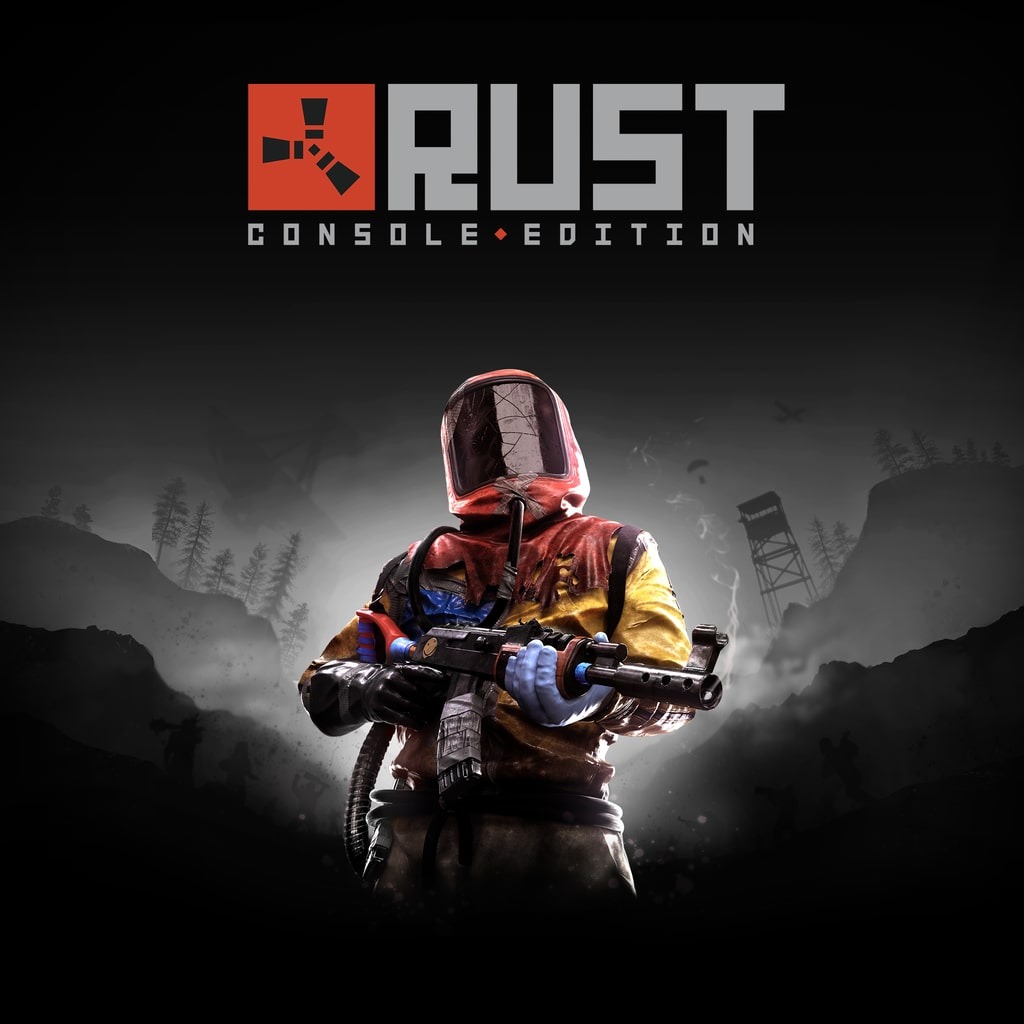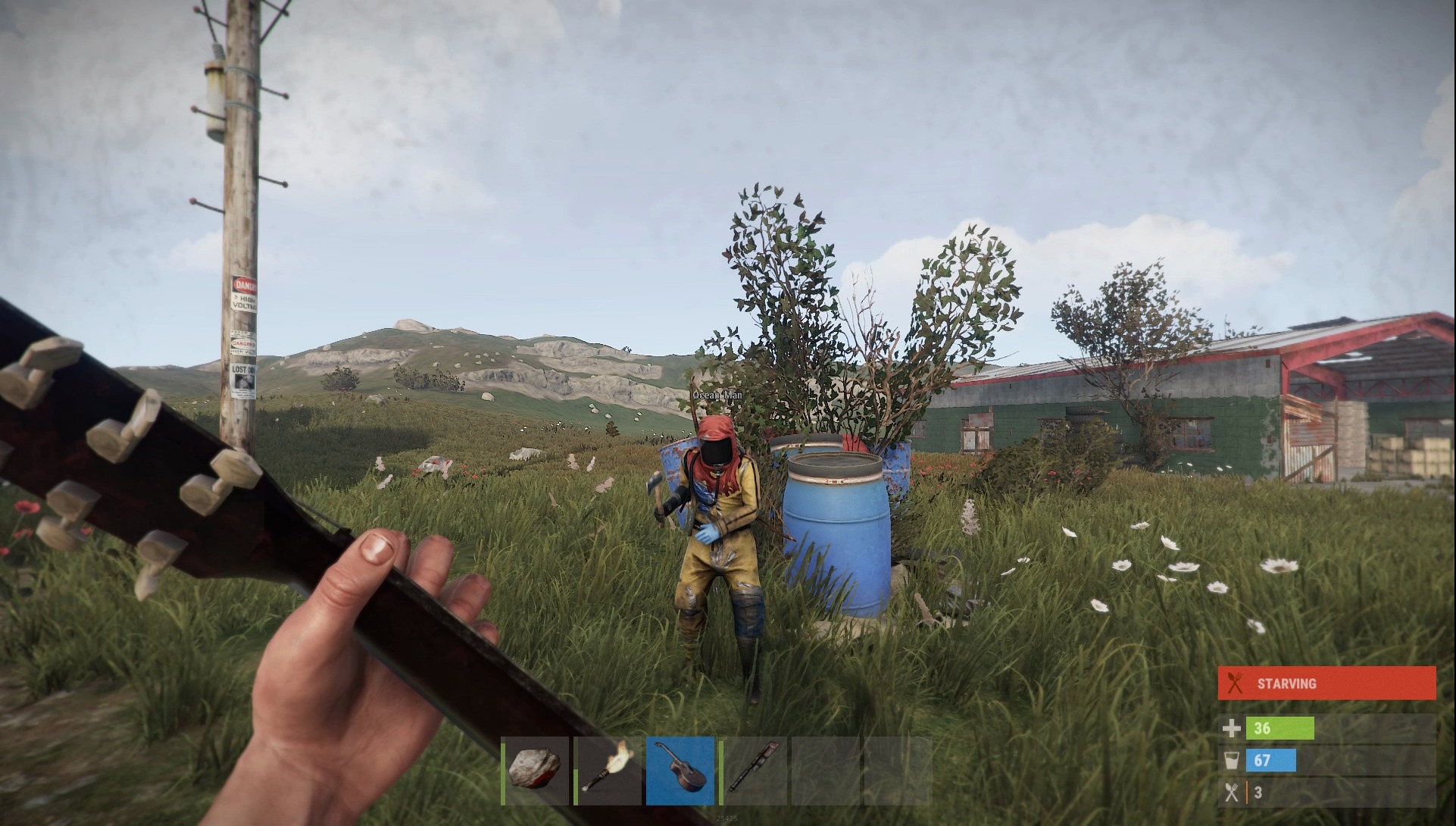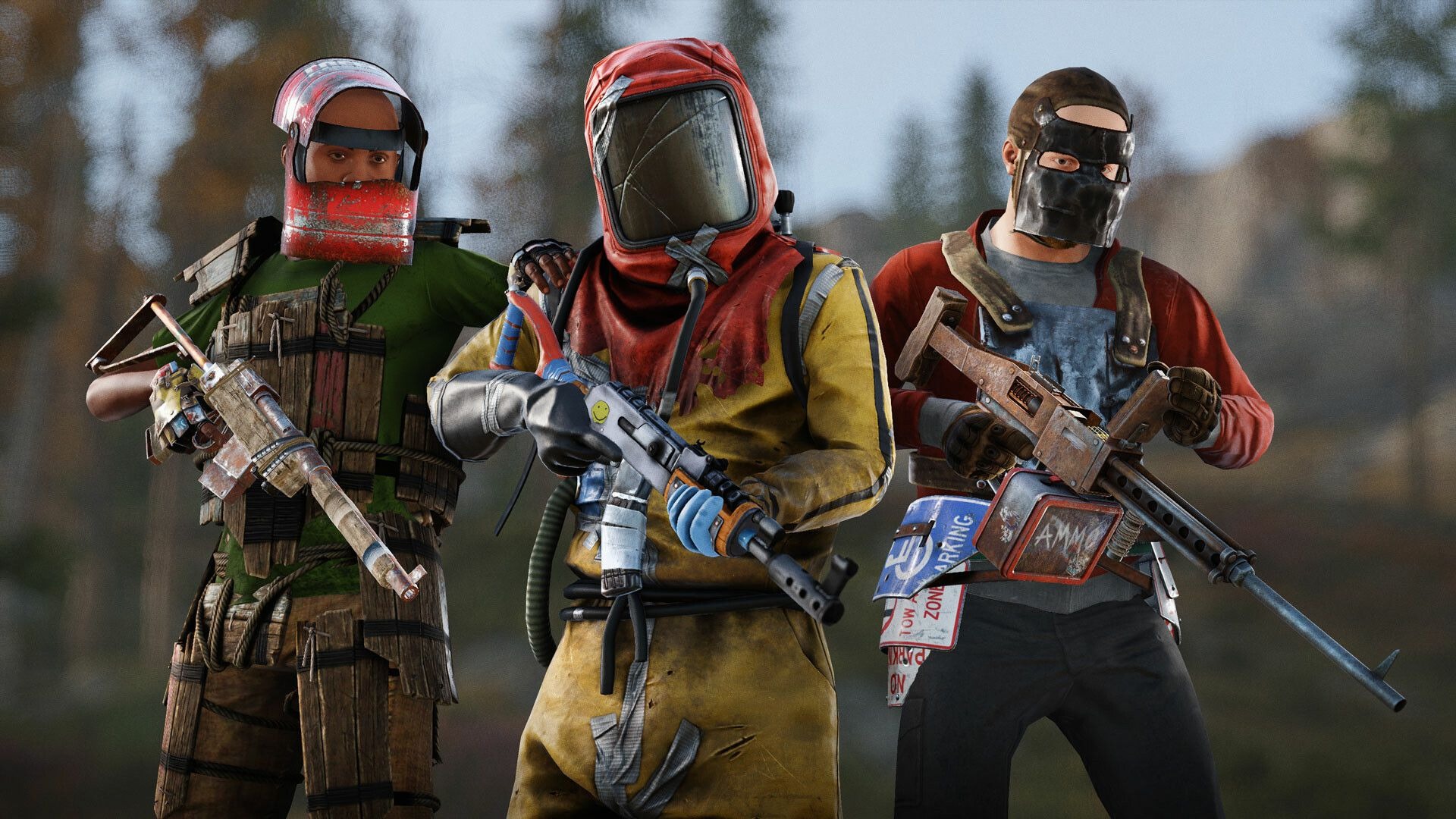
Rust
All trademarks belong to their respective owners. Get GameRust is a hardcore survival game where you gather resources, build bases, and fight to stay alive. Craft weapons, form alliances—or betray them. Only the strong survive!
The Psychology of Rust: Trust, Betrayal, and the Human Element
Rust is unique in the survival genre not just for its unforgiving mechanics, but for its profound exploration of human nature. More than a game of crafting and combat, Rust is a psychological sandbox where trust is a fleeting commodity, betrayal is a constant threat, and emergent social dynamics dictate every interaction. It’s a raw, unfiltered reflection of human behavior under pressure, where players are stripped of societal norms and forced to confront the best and worst in themselves and others. This volatile social landscape is what truly sets Rust apart and fuels its legendary, often brutal, reputation.

1. The Primacy of Trust (and its Fragility):
In a game where every player is a potential threat or ally, trust becomes the most valuable, and often the most elusive, resource.
- Forming Alliances: In a world designed to be hostile, finding allies is crucial for survival. Small groups can pool resources, provide mutual protection, and coordinate raids. These alliances are often forged out of necessity during early game struggles or mutual enemies.
- Voice Chat and Proximity: Rust’s proximity voice chat system intensifies interactions. You can hear players nearby, leading to spontaneous conversations that can quickly turn into cooperation, negotiation, or immediate conflict. This adds a layer of raw realism that is often absent in other games.
- The Weight of a Promise: A promise of peace, a shared resource, or a joint raid carries immense weight. When fulfilled, it builds tentative trust. When broken, it creates lasting animosity and a powerful lesson in caution.
- The Lure of Betrayal: The full-loot PvP system means that anyone you interact with is carrying potential wealth. The temptation to betray a newfound “friend” for their inventory, base access, or even just for the thrill of it, is ever-present. This makes genuine, sustained trust a rare and hard-won achievement.
- Impact: The constant tension between the need for allies and the risk of betrayal creates a unique social dynamic where every interaction is a calculated risk.

2. Anonymity and Dehumanization:
Rust’s environment often fosters a sense of anonymity that can lead to dehumanization, impacting player behavior.
- Lack of Persistent Identity (Server Wipes): While players have unique IDs, the periodic “wipes” reset all in-game progress, fostering a feeling that past actions have no lasting consequences beyond the current wipe cycle. This can encourage more ruthless behavior.
- “Naked” Starts: Every player starts as a “naked” with a rock, devoid of any distinguishing features or gear. This initial state of vulnerability and sameness can reduce empathy towards others.
- The Grind and Scarcity: The constant struggle for resources and the high cost of progression can foster a dog-eat-dog mentality. Players are often driven by a desperate need to secure their own survival, which can override moral considerations.
- “Role-Playing” as a Villain: Some players actively embrace a ruthless, bandit persona, finding enjoyment in being the aggressor and disrupting others’ progress. This can be a form of emergent role-playing, but it often contributes to the game’s perceived toxicity.
- Impact: The environment can bring out primal, self-preservation instincts, often leading to behavior that players might not exhibit in real life or other gaming contexts.
3. The Spectrum of Player Behavior: From Benevolence to Brutality:
Despite its reputation, the Rust community isn’t monolithic. It hosts a wide spectrum of player types:
- The Friendly Nomad: Players who avoid conflict, focus on peaceful farming, and might even offer help to struggling newcomers. They are rare but treasured.
- The Trader/Merchant: Individuals or groups who establish safe zones for trading resources, becoming economic hubs on the server.
- The Griefer/Bully: Players who derive enjoyment from destroying others’ progress, often without any material gain, simply for the sake of causing frustration. This is a significant source of the game’s toxicity.
- The Raider/Warlord: Organized groups who focus on dominating the server through systematic raiding, territorial control, and establishing power. Their goal is often loot, but also server control.
- The Hero: Occasionally, players step in to protect weaker players from bullies, deliver justice against notorious griefers, or organize large-scale community events.
- Impact: This diversity of behavior creates an unpredictable and dynamic world where every encounter can swing wildly from heartwarming cooperation to devastating betrayal.
4. The Emotional Rollercoaster:
Rust is a game of extreme highs and lows, directly tied to its social dynamics.

- Exhilaration of Success: Successfully defending a raid, pulling off a daring counter-raid, or simply surviving a tense encounter provides an adrenaline rush unlike most other games. The feeling of overcoming adversity and securing your hard-earned progress is incredibly satisfying.
- Devastation of Loss: Being raided and losing hours or days of progress can be soul-crushing. Being betrayed by a supposed ally can be emotionally taxing. This leads to a unique form of “Rust rage” that is well-known in the community.
- Addictive Cycle: The constant threat and the emotional highs and lows create an addictive loop. Players return, often after a raid, driven by the desire to reclaim what was lost or to achieve even greater triumphs.
- Impact: Rust cultivates an intense emotional investment in its players, making every success sweeter and every failure a potent learning experience.
Rust’s reputation as a “toxic” game is often a reflection of its mirror to humanity. It’s a game that doesn’t hold your hand, doesn’t force morality, and allows players to truly express themselves, for better or worse. For those who embrace its brutal honesty and navigate its complex social landscape, Rust offers an unparalleled and unforgettable psychological gaming experience.
